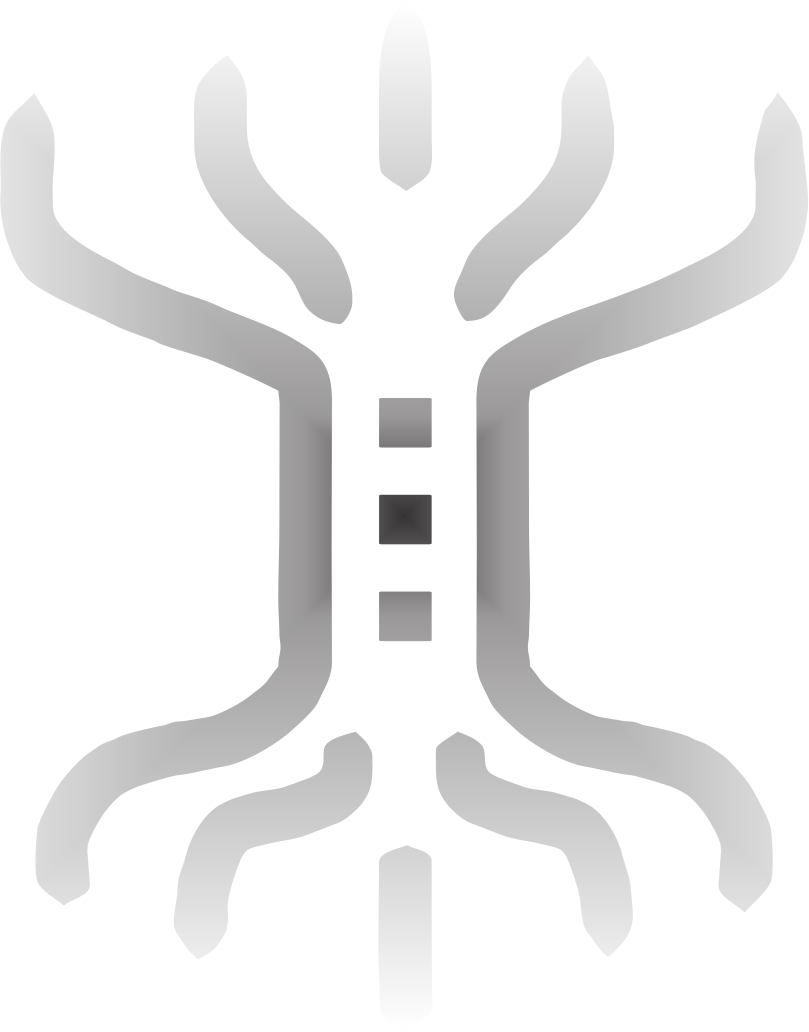

THE FARM
1561 4D
Andrew set down his load of shingles, surveyed their farm, smiled, and inhaled the fresh mountain air. The house was almost done.
Facing him, a great concave wall of black-laced granite marked the northern edge of his wide mountain valley, bounded behind him on the south by a long folded hump of brown rock shouldering upward, and to left and right by ochred boulders where long green fields fell away to emptiness. Their painted house, new, its windows open to the summer air, shone in the sun.
The children thrived. Engel and Maiji chased madly through tall grasses into the evergreens under the northern wall. There was no sensi feed out here, to keep their bodies cocooned, twist their minds into the City‘s tangled knots of life. Already his childrens’ eyes seemed brighter, their imaginations awake as they explored the tiniest details of this miraculous vastness: while the other two zigzagged among the trees, Janny came running with full hands, to show him a red-brown, flat-bodied lizard with dozens of its young riding its hindquarters, clinging to spiky hairs on their parent.
Above the wall, the peaks staged upward; nestled among them, the metal roofs and fences of ArCorp‘s mountain mining complex gleamed. To Andrew, this was the only flaw marring his dream home: the pool his bovines used had a sour, oily taste, and he knew it was from the mine’s runoff. He had lodged protests with ArCorp, had heard nothing.
Behind the house hulked a big white barn, its black lightpanels staring sunward from its roof. Leil walked with a load of tools toward the barn, her brown hair glinting reddish in the sun.
The quinicale grain was finally taking hold, and the cattle Andrew had bought were feasting on the high grass. The laws allowed him eight head, four to produce the range of special milks, hormones and juices the City suppliers would buy, and the rest to serve as breeders and replacements. All by-products went to processing centers to emerge as fertilizer.
He had had to construct a network of channels and pipes to capture all livestock runoff and funnel it into a sun-powered recycler for breakdown and resynthesis with special enzymes. Inspections came every month, even in the winter, when the winds and snows drove all the animals inside for the season, and the drifts isolated the house from the rest of the world.
Today, Andrew worked on his house with his brothers. He had to finish a bedroom addition, small, practical, well-sealed against the mountain winter winds, with double-layered windows. The ceiling bulged with padding, proof against the bitter chills that gripped these highlands. The walls, floors, roof base, and supporting members were made of cellusteel, a vat-grown form of wood, strong and durable; it was the only City-licensed material usable for homes out here, and it was not cheap. Use of real wood was forbidden; the penalty was confiscation of the wood and long-term mine labor for the builder.
Martin, who had been the first to put up a house like this one, knew how to do it right and fast; he always caught on sooner, and thought things through better, than Andrew or Raul or Norwell.
Martin had helped all his brothers when their turns had come. His agile hands always flew as he talked; the rough places in walls and floor and ceiling somehow smoothed as he passed them.
Today he nailed shingles on Andrew‘s roof. He called, “Andrew, where’s the tilling droid? I need it for my grain garden.”
Andrew cringed inwardly. In the work on the bedroom, he’d forgotten to order the parts he needed to repair the droid, which he’d borrowed for Leil to use in their own gardening. “It’s in the barn. It needs parts.”
Martin laid down his hammer. “Parts? I thought it was working fine.”
“The flex shaft snapped when the blades caught on a root. There weren’t replacements down at Drevill.”
“There never are.” Martin did a controlled slide down to the roof edge, and turned onto the ladder. “That’s why you have to call over to Saryn’s Neck and get theirs.” When he stepped off the ladder his bronze face was a shade too red.
“Sorry.” Martin was going to blow up on this one.
“I’ve got fifteen crates of quinicale seedlings waiting, and they’ve got to be in the soil in five days, and how’s that going to happen now? Didn’t you think?” Martin‘s face was nearly touching Andrew‘s. “This is going to cost me at least four hundred fifty that I don’t have, and you don’t either.”
“We can get an andro to pick them up at the Neck and get them to Engrammatic Innó“
“No, forget it, Andrew, it’s too late. I’ll have to get this done myself. You do your own damn roof.” And Martin stalked off to his autocart and left.
Raul came up beside him. “Ah, Andrew, let him go. He’s just wound up, like he always is. He did the same thing with me, but he’s okay.”
Andrew looked up at his bear of a younger brother. Raul had brought his wife and three children out five days after Andrew, just escaping a relocation. Norwell had followed the next day with his woman.
Andrew was just as happy to have them around out here as he’d ever been in the City. “Yeah, that’s Martin. But it’s hard on everybody when he pops like that.”
Raul shaded his eyes to follow Martin‘s autocart as it tilted down Andrew‘s farm road. “I just wonder if it’s going to hurt him some day.”

